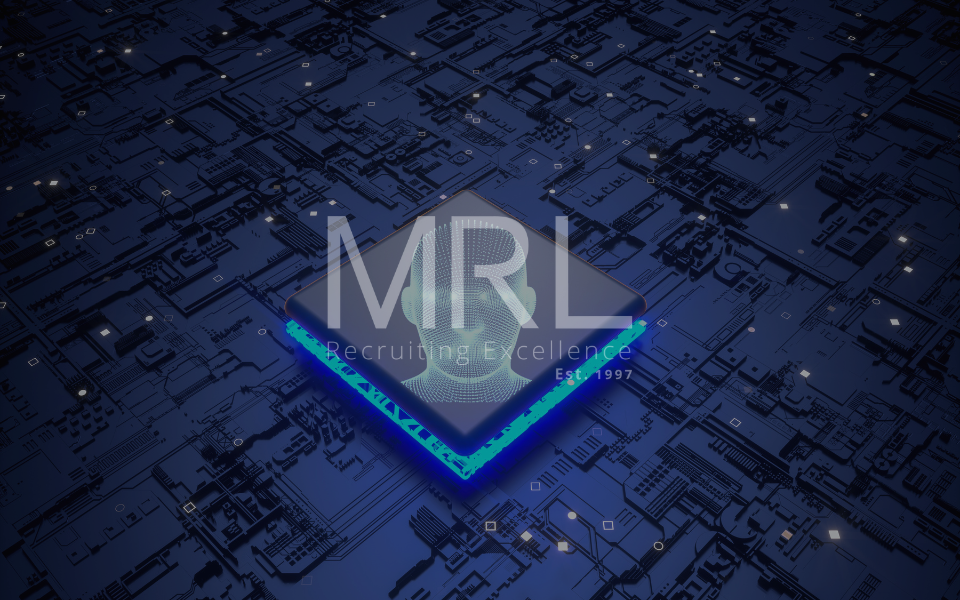Explore Emerging Biotech Trends in 2024 for Life Science Professionals
13 Dec, 20238 minutesEmerging Biotech Trends in 2024: Opportunities for Life Science ProfessionalsBiotechnology, ...

Emerging Biotech Trends in 2024: Opportunities for Life Science Professionals
Biotechnology, often called "biotech," stands at the forefront of scientific and technical breakthroughs, making substantial contributions to industries such as healthcare, energy, and agriculture. With the global biotech market projected to surpass $3.44 trillion by 2030, the sector is witnessing exponential growth, driven by the acceptance of emerging technologies and services that address significant global challenges.
This article delves into the top biotech trends poised to reshape the landscape in 2024, offering new opportunities for life science professionals.
What is Biotech?
Biotech utilizes biomolecular and cellular processes to create goods for various industries, including food, medicine, and energy. Scientific and technical advancements in the field have catapulted biotech into one of the most innovative sectors globally.
Latest Biotech Advancements
With all of our scientific advancements, biotechnology is now soaring with unprecedented potential. Here are some of the latest advancements in the biotech industry:
Gene Editing
At the heart of biotech's evolution lies gene editing, with CRISPR leading the charge. CRISPR, which stands for Clustered Regularly Interspaced Short Palindromic Repeats, originally a part of bacterial defense mechanisms, is now a precision tool for editing genes in various organisms, including humans. The power of CRISPR lies in its ability to modify DNA sequences with unprecedented accuracy, holding promise for correcting genetic abnormalities, treating hereditary diseases, and preventing certain conditions.
In medicine, CRISPR opens doors to a future where genetic diseases could be treated at their root. Beyond human health, gene editing holds potential for agricultural advancements, addressing global food security and sustainability challenges.
The evolving toolbox of gene-editing tools, from CRISPR to zinc finger nucleases, empowers scientists to tackle a wide range of genetic challenges. Life science professionals navigating this field find themselves at the forefront of shaping the future of medicine, from groundbreaking research to the development of new therapies.
Personalized Medicine
The era of one-size-fits-all treatments is fading. Unlike traditional approaches, personalized medicine tailors healthcare to each individual's unique genetic makeup, lifestyle, and environmental factors. Rapid advancements in DNA sequencing technology enable a faster and more cost-effective unraveling of genetic codes, making personalized medicine accessible and applicable across various medical fields.
This revolutionary approach is not confined to the laboratory; it empowers both healthcare providers and patients. Predicting individual responses to medications and guiding treatment selection, personalized medicine fosters a proactive approach to healthcare. The global market projection for personalized medicine surpassing $869.5 billion by 2031 reflects the biotechnology industry’s tailored approach's growing recognition and adoption.
While the promises are monumental, challenges such as data privacy, consent, and ethical considerations require careful navigation. Looking ahead, the integration of personalized medicine with cutting-edge technologies like artificial intelligence and machine learning is anticipated, enhancing treatment recommendations and predictive models.
Biopharmaceuticals
In 2024, the ascent of biopharmaceuticals will define a transformative trend in biotechnology. Derived from living organisms, these therapeutic agents, including monoclonal antibodies, vaccines, and gene therapies, represent a departure from traditional drugs.
Biopharmaceuticals uniquely address complex diseases, offering precision and effectiveness that conventional pharmaceuticals may struggle to achieve.
The field is marked by groundbreaking advancements, from gene therapy that targets genetic disorders to biosimilars expanding accessibility. For life science professionals, the surge in biopharmaceuticals opens diverse career opportunities in research, development, and regulatory affairs.
Machine Learning and AI
Artificial intelligence (AI) and machine learning (ML) play pivotal roles in biotech breakthroughs. The integration of intelligent algorithms enhances automation, aids drug development, helps identify medical risks and new drug targets, and identifies disease characteristics through image categorization. These technologies are integral in decoding vast genomic datasets, advancing precision medicine by tailoring treatments to individual genetic profiles.
The drug discovery process undergoes a paradigm shift as ML and AI analyze extensive datasets, accelerating the identification of potential drug candidates and optimizing development timelines. Biomarker discovery benefits from these technologies, aiding in early disease detection and treatment response monitoring.
ML and AI's success in predicting protein folding enhances drug design, while their role in patient stratification in clinical trials ensures treatments are tested on populations most likely to benefit. Predictive analytics models contribute to public health by forecasting and monitoring disease outbreaks, allowing proactive interventions.
Stem Cell Technology
Stem cells, with their unique ability to differentiate into various cell types, are the key to revolutionizing regenerative medicine. Stem cell applications range from repairing damaged organs and tissues to addressing conditions like Parkinson's and osteoarthritis.
Bioprinting and tissue engineering, complementing stem cell technology, enable the precise creation of functional organs and tissues, opening avenues for tissue grafts and organ transplantation without the need for donors.
Advancements in regenerative therapies, coupled with a global biotechnology market projected to grow significantly, underscore the increasing recognition of stem cell technology's potential. The surge in stem cell technology presents diverse career opportunities for life science professionals, from researchers to medical professionals specializing in regenerative medicine. As stem cell research continues to progress, the future holds exciting prospects for reshaping medical possibilities and offering hope to patients facing previously untreatable conditions.
Tissue Engineering and Bioprinting
As mentioned above, bioprinting software and tissue engineering are reshaping the medical landscape, enabling the precise creation of functional organs and tissues. Tissue engineering combines biology and engineering to repair or replace damaged tissues, while bioprinting introduces 3D printing with living cells, offering precise solutions for tissue repair and organ creation.
Applications span regenerative medicine, from customized tissues for various injuries to the potential creation of organs on-demand. Breakthroughs in organ transplantation, particularly in countries like Brazil, showcase the global impact of bioprinting technologies.
Big Data
Big Data is revolutionizing a number of industries, not least of which is Biotechnology. In 2024, Big Data will emerge as a driving force in biotechnology, transforming analysis and innovation. Its impact spans genomics, accelerating drug discovery, aiding biomarker discovery, and providing crucial insights for personalized treatment regimens.
Big Data's predictive analytics enhance clinical trials and contribute to early disease detection in public health. Despite challenges like data privacy and ethical considerations, integrating Big Data promises unprecedented possibilities, shaping the future of biotechnology with data-driven precision and innovation.
Future Outlook and Impact of Biotech
The future of biotechnology in 2024 is undeniably bright. As life science professionals, you are key to a global impact on healthcare, disease management, and personalized treatments. Embrace the positive outlook, knowing your contributions can shape a healthier, more personalized future for all.
The biotech sector's dynamism and rapid evolution require professionals to stay updated on the latest biotech news and engage with the evolving field. Your expertise, passion, and dedication are the driving forces that will propel biotechnology into uncharted territories.
Interested in Pursuing a Career in the Life Science Industry?
Are you considering a career in the dynamic life sciences industry? Your search ends here! At MRL, we specialize in collaborating with prominent biotech companies and key players in the life sciences field.
Whether you're seeking your next career challenge or exploring exciting job opportunities in this rapidly evolving industry, our dedicated team of recruiters is committed to supporting you throughout the entire process. Get in touch with us today and discover how we can assist you in achieving your professional aspirations.


